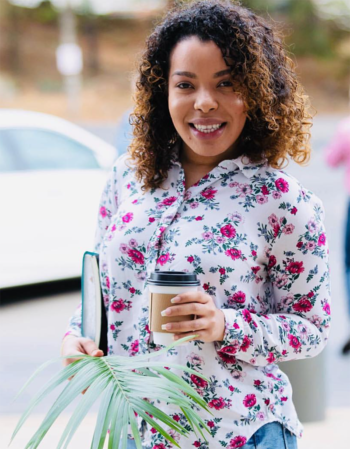As a three year old, Ada Betsabé Ruiz would sing in the church and wind up crying under the power of the Holy Spirit.
But when she was 14, she left the church because of controlling and abusive leaders. She became a skeptic and rebelled against everything she had learned. God had been “misrepresented” to her, so she turned her back on Him.
As an immigrant from the Dominican Republic with her parents, she lived from age three in New York’s Bronx where people blasted from cars either salsa, bachata or hip hop. Biggie and Pun enthralled her, and she started mimicking and composing verses herself.
With no moral compass, Ada fell into lesbianism. She began a formal relationship in 2012 with a domestic partner who had no background in Christianity. Their home was adorned with Buddhas and crystals. “We were both really searching,” she says.
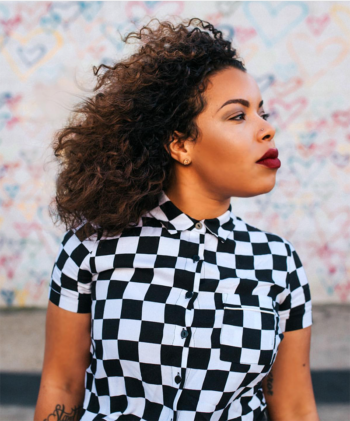 Ada launched a secular hip hop career in English, and she was gaining notoriety. She got a handler and was at the point of signing a major record label. She attended a music conference in Los Angeles in April 2014 to interview with executives.
Ada launched a secular hip hop career in English, and she was gaining notoriety. She got a handler and was at the point of signing a major record label. She attended a music conference in Los Angeles in April 2014 to interview with executives.
But the bosses and her new friends did more than just worldly music; they were into Luciferianism, and they invited Ada to participate. They drank wine mixed with blood and apparently performed human sacrifices. Somebody in the cult died mysteriously during the conference, Ada tells God Reports.
Frightened by what she saw and by what was happening, Ada declined to join.
“I had the opportunity to be a part of it, but instead decided to run to Jesus,” she says.
She never signed the record deal and, no longer “skeptical” about the reality of supernatural things, went to her Airbnb in Hollywood to reconcile with Jesus.
“I was terrified after the things that took place in LA,” Ada says. “This situation, however, proved to me that evil was real and good was real.”
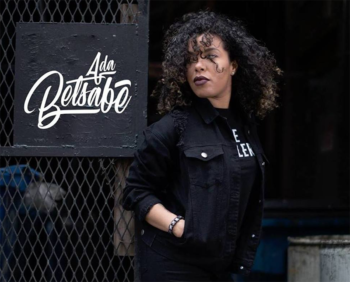 Ada returned to the East Coast and shared with her domestic partner what she had experienced. Both of them went to church, repented of their sins and broke off their relationship, she says.
Ada returned to the East Coast and shared with her domestic partner what she had experienced. Both of them went to church, repented of their sins and broke off their relationship, she says.
Back with Jesus, Ada was ready to turn her back on hip hop entirely. But three months later during revival services, the preacher “picked me out of the crowd and gave me a public prophecy that God wasn’t done, and He’d use my story to reach many,” she says.
“I’d be a sharpened arrow in her hands,” Ada adds.
Dutifully, Ada began making Christian raps. This time she used a lot of Spanish. Ada’s music involves more than a sprinkling of Spanish. Right now in Christian Hip Hop, a lot of artists, recognizing the huge market among Latino Christians, include snippets of Spanish. But Ada’s music distances itself from the crowd because it’s about 50-50 Spanish English.
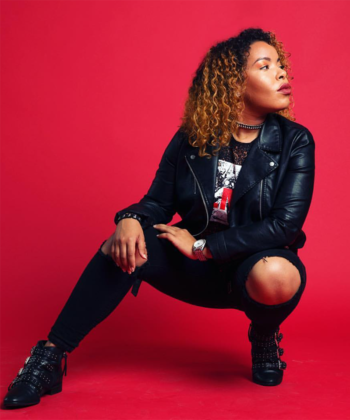 “I don’t think my niche is too limited. I think it’s highly un-tapped,” she says. “People in Spanish speaking countries love English music, and they love hearing some Spanish mixed in to the songs. I used to feel like I HAD TO choose one language but honestly, this is who I am. I’ll talk to you in English and switch to Spanish halfway through the conversation.”
“I don’t think my niche is too limited. I think it’s highly un-tapped,” she says. “People in Spanish speaking countries love English music, and they love hearing some Spanish mixed in to the songs. I used to feel like I HAD TO choose one language but honestly, this is who I am. I’ll talk to you in English and switch to Spanish halfway through the conversation.”
It’s not street lingo; it’s high-grade Spanish that would get the nod from the Royal Spanish Academy in Madrid.
Now based in Boston, Ada dropped her first album in January 2016 on her 25th birthday “as a personal offering to God for giving me life,” she says. Freedom debuted in the top 20 of iTunes Hip-Hop chart with its lead single and video, “Mi Escudo,” generating close to 100K views on YouTube. She followed it up with an EP “Personal.”
Ada was named one of the 10 women to watch in CHH in March of this year by Rapzilla. She has toured Honduras, Guatemala, El Salvador, Mexico and Colombia. Her next project to set to be released this summer.
Ada remembers to strike a balance between ministry and business.
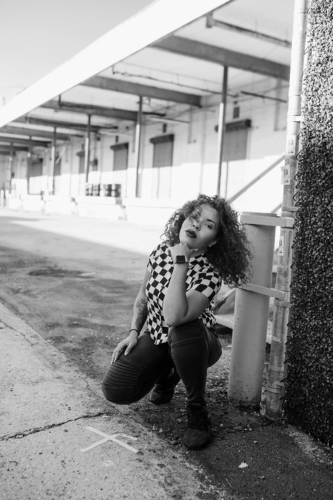 “My biggest personal struggle has been identity and staying grounded on who God says I am and being faithful to the path He’s already written for me,” Ada says. “I’ve struggled with comparison and often find myself walking into commitments, events and collaborations all because it seems like what I should do or ‘this is what will get me to my destiny.’
“My biggest personal struggle has been identity and staying grounded on who God says I am and being faithful to the path He’s already written for me,” Ada says. “I’ve struggled with comparison and often find myself walking into commitments, events and collaborations all because it seems like what I should do or ‘this is what will get me to my destiny.’
“After I’m in it, I realize, ‘Wow I should’ve asked God about this, not my feelings or the other industry people around me (who have great intentions, but are simply just not well informed on what MY particular path is),’” she adds.
Ada’s odyssey in and out of the world has been “super overwhelming.” She hopes to one day write a book and produce a “dope” movie. Already lives are changing around her when people hear her testimony, she says.
Ada is no longer three years old, but she still cries when she sings. Hip hop is known for flaunting a tough guy — and even a tough girl — image, not for being overly sensitive.
“Crying on the set is not my normal thing, but it has happened,” she says.
If you want to know more about a personal relationship with God, go here
Read about other Christian hip hop artists by clicking: 1K Phew – Aaron Cole — Ada Betsabé – Andy Mineo – Benjamin Broadway — Bizzle – Canon – Cass – Datin – Flame – Gawvi – HeeSun Lee – Jackie Hill-Perry – Jarry Manna — JGivens – Joey Vantes — John Givez – KB – Lecrae – Lil T Tyler Brasel– MC Jin – NF – nobigdyl. – Propaganda – Ray Emmanuel — Ruslan – Sevin – S.O. — Social Club Misfits – Steven Malcolm – Tedashii – Tobe Nwigwe – Trip Lee – Wande Isola – WhatUpRG — YB
And secular rappers who have come to Christ (at least to some degree): Chance the Rapper – Kendrick Lamar – No Malice — Snoop Dogg — Kanye West
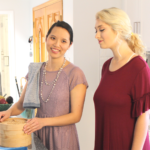 And an overview article about the state of affairs in CHH: Christian Hip Hop in Controversy.
And an overview article about the state of affairs in CHH: Christian Hip Hop in Controversy.
Michael Ashcraft is CEO of Cuisine Natural which sells bamboo steamers.

